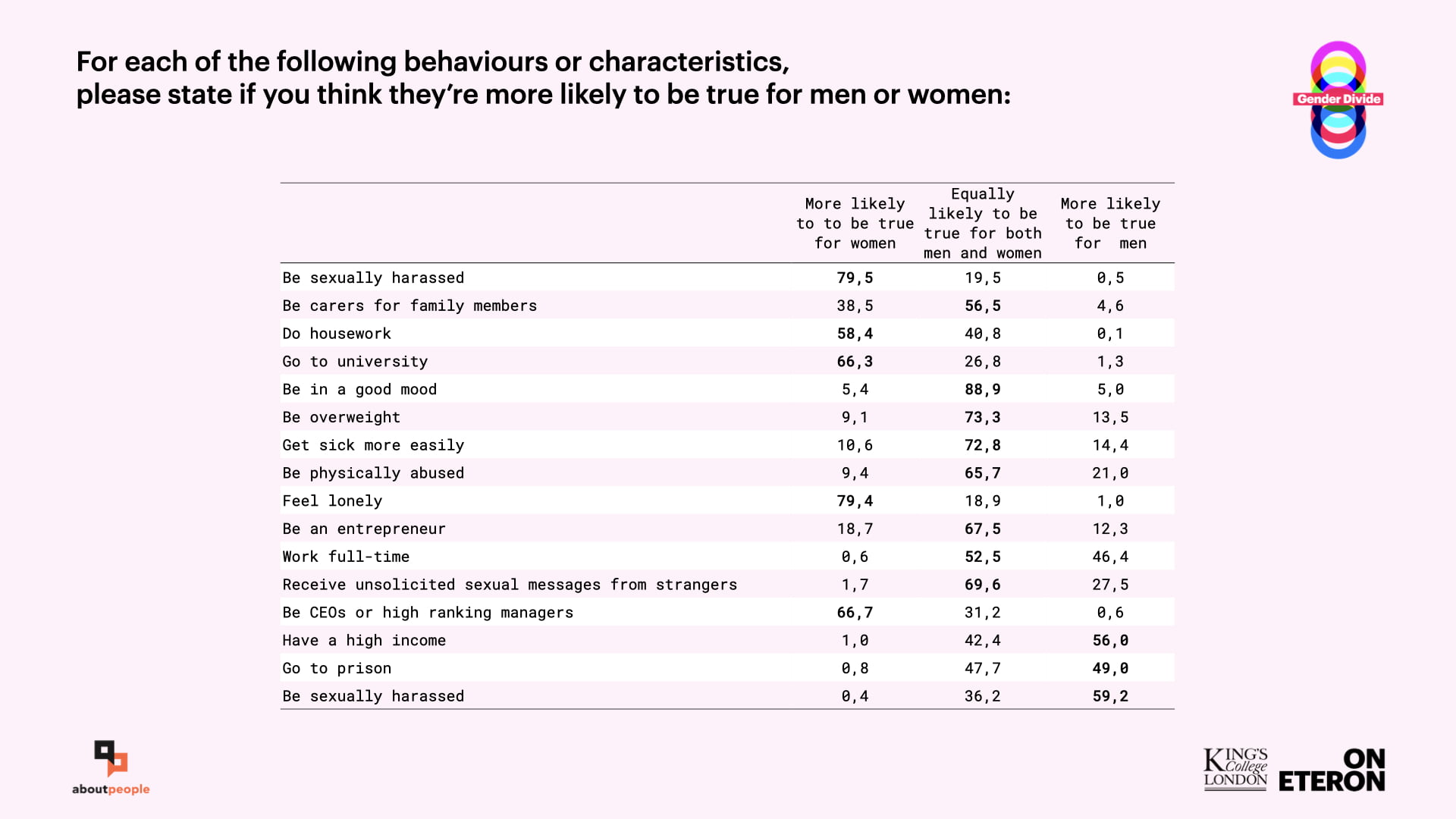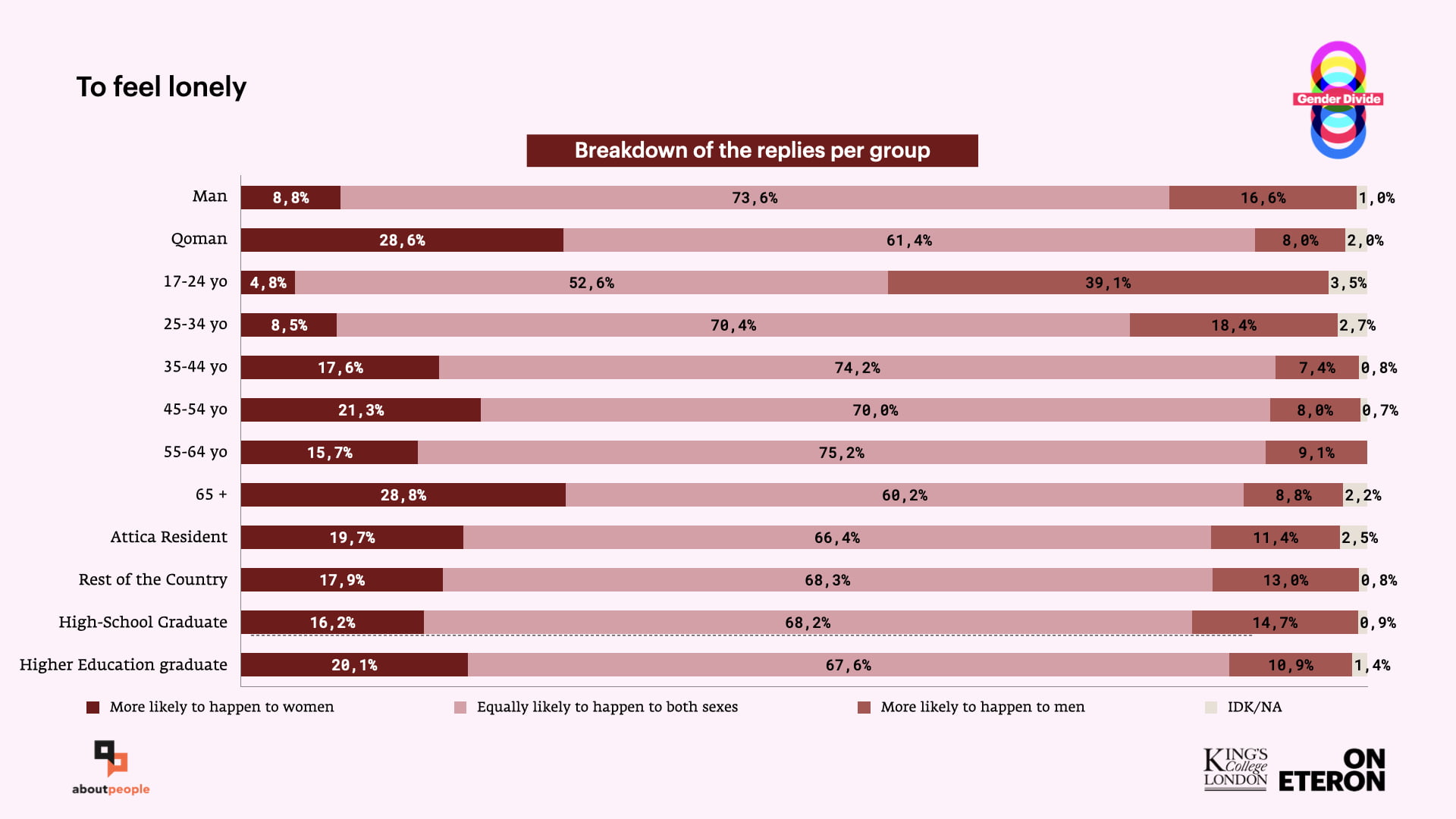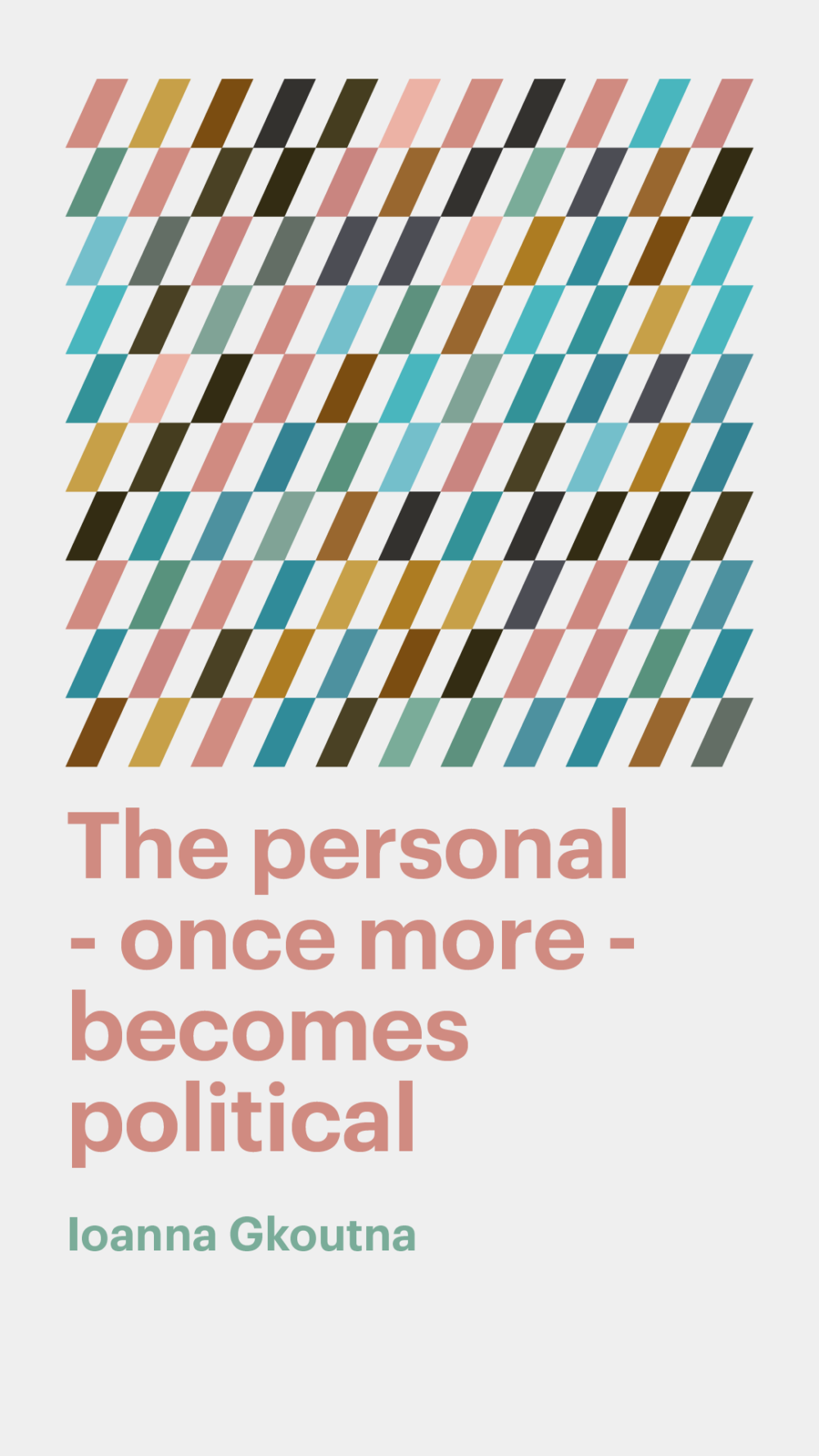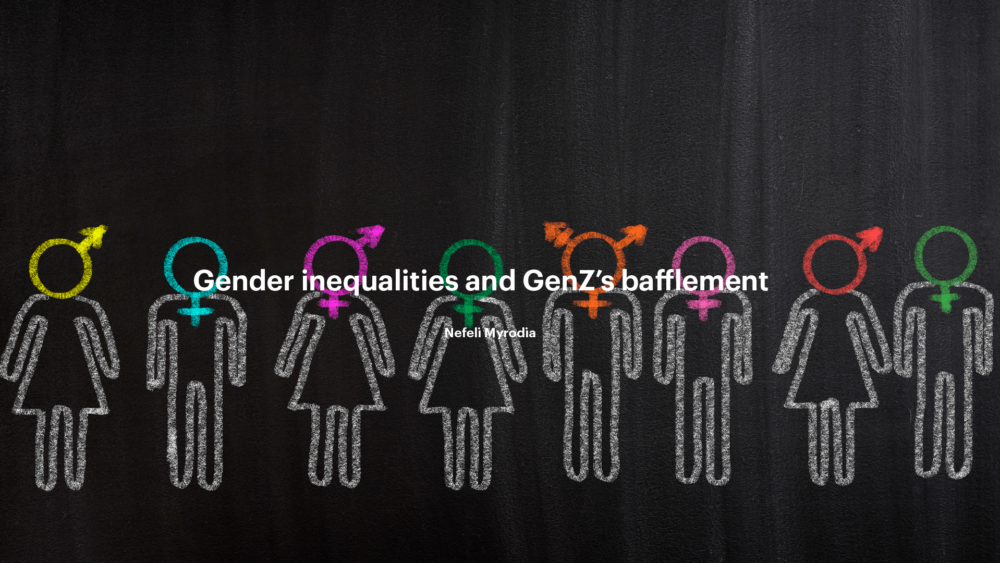
The biological characteristics of the two sexes. What does Greek society think on the matter?
A commentary on the findings of Eteron’s Gender Divide survey
The data collected for Eteron’s Gender Divide survey gives us a lot of information about the Greeks’ perceptions regarding social pathogens such as gender violence, sexism and femicide, issues that in recent years have been increasingly discussed in the Greek public sphere.
In the first part of the survey, participants are asked to indicate whether -in their opinion- a hypothesis is more likely to be true for women, for men or for both sexes equally. A sub-set of these hypotheses is somewhat related to the biology of the sexes, such as which sex is more likely to live longer, get sick more easily, be in a better mood, and feel lonelier. These questions need to be analysed differently, as they mostly refer to scientific facts that are difficult to dispute, and less to the respondents’ perception of gender issues. However different in terms of this parameter, it would be useful to compare the two sets of question-answers in the future with actual data collected in Greece, in order to make a comparison between the perception of Greeks and scientific reality.

As for the questions that have a more direct scientific basis, the majority of Greeks believe that both sexes are equally likely to be overweight, get sick more easily, be in a good mood and feel lonely. Yet, research has shown that women, in most countries, are more likely to develop an obesity problem [1] but are less likely to get sick [2]. So, based on the above findings, while participants gave the “wrong” answers, they still provided us with insights into how they give replies that are based on their experiences, rather than on specific research that they probably have never heard of. On the other hand, the majority of participants correctly assumed that women live longer than men [3], as the results of statistical surveys on life expectancy are apparently known to a wider range of respondents.
The fact that in this particular sub-group of questions the participants overwhelmingly opted for “equally likely for both sexes” (or gave the correct answer, in the case of life expectancy), means that the Greeks recognise that these aspects of a man’s or a woman’s life are more related to the biology of the two sexes (which they consider to be similar when it comes to these particular issues) than to the existing social conditions. Although biology is the most significant factor in this sub-group, it should not be assumed that social conditions (which are different for each sex) do not affect life expectancy, susceptibility to illness and the psychosomatic health of the sexes.
Even in the questions where there is a statistically correct answer (e.g. obesity and illnesses), the Greeks appear to either be undecided (if we assume that some people answered “equally likely” because they do not know what is the statistically right answer) or believe that the odds, due to biology, are indeed similar. That indicates that perhaps the participants understand that the above statistics have more of a biological than a social explanation. These questions can arguably be considered to be less useful in terms of identifying gender discrimination, as the participants answer them based not so much on their social perception, but more on what they believe to be scientifically accurate. This is also reflected in their response to the better known statistic of longer life expectancy for women.
It is interesting to observe the breakdown of the responses given to the question “which sex is more likely to feel lonely”. Only 8% of both men and women replied that the opposite sex is more likely to feel lonely, perhaps because it is difficult for a person to understand how the opposite sex experiences feelings such as loneliness. 16.6% of the men replied that they are more likely to feel lonely, while the respective percentage for women (men saying that women are more likely to feel loneliness) is 28.6%, a difference that can be attributed to the fact that in general women have been observed to report feelings of loneliness more often than men [4]. Similarly, it is interesting to mention that the percentage of women that responded that women are more likely to feel lonely increases the older the female participants are. A similar observation can be made about the respective replies given by the male participants.

When it comes to matters that are more related to social life, it is worth mentioning some questions to which one out of the three possible replies gets 1% – matters concerning either some kind of abuse (sexual harassment, physical abuse, unsolicited sexual messages by a stranger) or the perception of the position and role of each gender in society (being an entrepreneur or a CEO/ manager, having a high income, doing housework and going to prison). To sum it up, there is a minuscule percentage of Greeks who responded that women are more likely to be entrepreneurs, managers, have a high income and go to prison. Similarly, those who responded that men are more likely to do housework is close to zero, thus confirming the existence of patriarchal stereotypes within Greek society. These particular questions are of greater sociological interest, therefore it is recommended that they be further analysed by the Eteron Institute.



